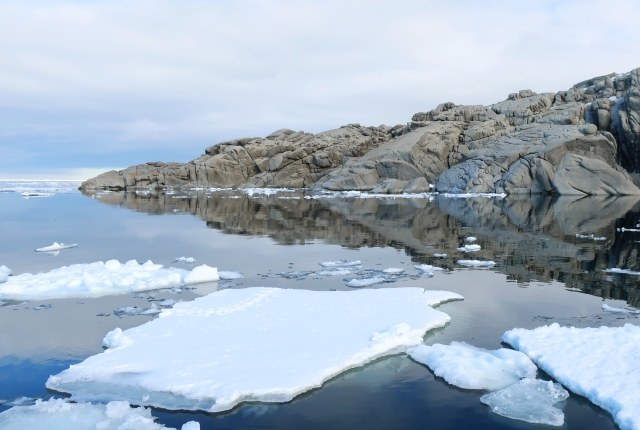Some species of marine polychaete worms living in Antarctica can survive without freezing thanks to antifreeze proteins produced by symbiotic bacteria in their microbiota. The discovery - published in the journal Science Advances - was made by an Italian research team conducting studies in the Ross Sea, where the Mario Zucchelli Station, one of two Italian scientific bases in Antarctica, is located. The results could pave the way for biotechnological applications of cryopreservation.
"The results of this research point to the importance and complexity of the co-evolutionary dynamics between microbiota and host," says Marco Candela, professor at the Department of Pharmacy and Biotechnology at the University of Bologna and one of the authors of the study. "The evolution of plants, animals and even humans, as well as adaptive responses to the environment and its changes will be reconsidered, integrating the microbiome as a biological component essential to life".
In Antarctica, geological isolation and the stability of extreme climatic conditions for more than 34 million years have led to a number of unique strategies for adapting to low sea temperatures, which are consistently close to -2 degrees Celsius. We know that some fish survive in these environments by producing specific antifreeze proteins, but many other organisms have not developed the ability to produce them. These include the marine polychaete worms on which the researchers have focused.
To explain how these worms still manage to survive the Antarctic environment, the researchers studied their microbiota: the set of microorganisms that coexist in their tissues. The results revealed the presence of certain bacteria, never before detected in other Antarctic invertebrates, capable of producing special proteins that lower the freezing point of internal liquids and make them more fluid. These proteins produced by bacteria allow the polychaetes that host them to improve their 'blood' circulation and oxygenation, allowing them to adapt to low temperatures.
"The data collected shows an evolutionary symbiosis between bacteria and Antarctic worms that has been established since ancient times and benefits both parties," explains Marco Candela. "In addition, this study provides further evidence that the symbiotic bacteria present in the tissues of animal organisms are essential to their life and have evolved functional properties that complement the host’s physiology, becoming an integral part of it and allowing it to adapt to different environmental conditions".
The research activity - part of the DEMBAI project, funded by the National Research Programme in Antarctica (PNRA) - revealed traces of these bacteria also in the subsurface sediments of the Moss Sea, which makes it possible to hypothesise an ancient connection with marine polychaete worms.
"Microbes living in symbiosis with Antarctic animals give them 'superpowers' to adapt to extreme cold and overcome frostbite," confirms Cinzia Corinaldesi, professor at the Università Politecnica delle Marche, who coordinated the study. "The discovery of these antifreeze bacterial proteins also opens the field to new biotechnological applications, as it allows us to understand how we can use natural solutions for cryoprotection".
The study was published in Science Advances under the title 'Resistance to freezing conditions of endemic Antarctic polychaetes is enhanced by cryoprotective proteins produced by their microbiome'. Participating for the University of Bologna were Marco Candela, Simone Rampelli, Silvia Turroni and Giorgia Paladino from the Department of Pharmacy and Biotechnology, together with Erika Esposito and Jessica Fiori from the 'Giacomo Ciamician' Department of Chemistry.



